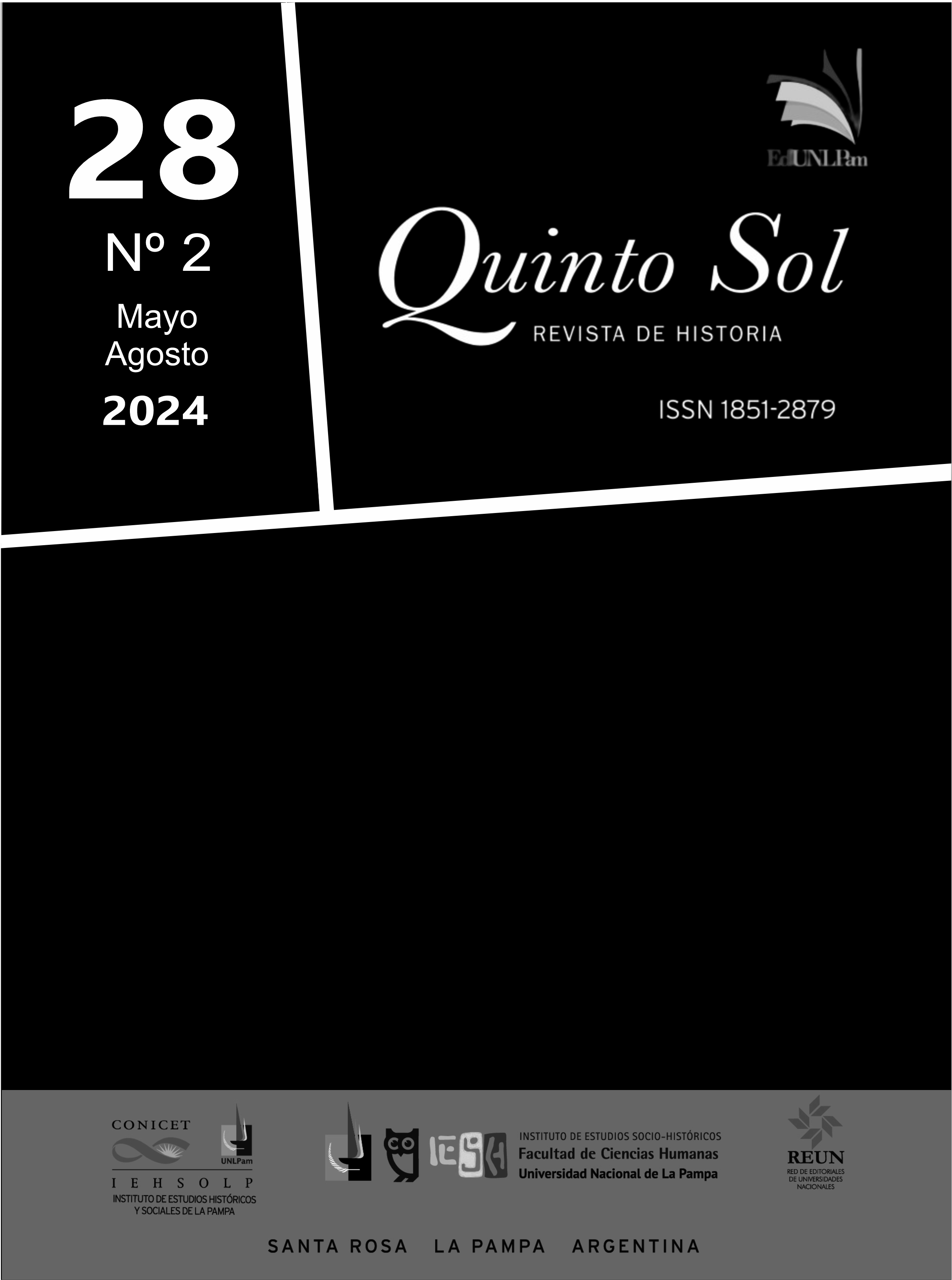Love from your mother who does not forget you: migrations, asylum motherhood and medical discourse in Buenos Aires (1900-1930)
DOI:
https://doi.org/10.19137/qs.v28i2.7780Keywords:
maternity, migrations, emotions, asylumsAbstract
This paper aims to address some consequences of immigration in relation to the exercise of motherhood between 1900 and 1930 in Buenos Aires. Through a case study we explore the experiences of a migrant mother who decided, under particular circumstances, to place her children in children's homes. Far from being an exception, this case expresses the experiences of other women who were diagnosed with various mental illnesses in which a deviation in "affectivity" and behavior towards the family nucleus with emphasis on the children appears as a symptom. Through the interweaving of sources that include medical records of the Asilo de Alienadas de Lomas de Zamora and files of minors of the Sociedad de Beneficencia, this article proposes to account for both the emotional prescriptions within the medical discourse in relation to the exercise of motherhood, as well as the emotional experiences of women who went through the path of medicalization and confinement. In the children's files it is possible to trace evidence of their experiences but also the agency, the motivations and the meaning of motherhood and care that a mother deployed in a context of vulnerability produced by migration.
Downloads
References
Ablard, J. (2008). Madness in Buenos Aires: patients, psychiatrists, and the Argentine state, 1880-1983. University of Calgary Press.
Baldassar, L. (2001). Visits Home: Migration Experiences Between Italy and Australia. Melbourne University Press.
Baldassar, L. (2008). Missing Kin and Longing to be Together: Emotions and the Construction of Co-presence in Transnational Relationships. Journal of Intercultural Studies, 29 (3), 247-266. https://doi.org/10.1080/07256860802169196
Bjerg, M. (2019a). Lazos rotos: la inmigración, el matrimonio y las emociones en la Argentina entre los siglos XIX y XX. Editorial de la Universidad Nacional de Quilmes.
Bjerg, M. (2019b). El cuaderno azul, el perro de peluche y la flor de trencadís. Una reflexión sobre la cultura material, las emociones y la migración. Pasado Abierto, 9, 140-157.
Blanco Rodríguez, G. (2022). Migraciones, trabajo familiar y género. La horticultura en General Pueyrredón [tesis de doctorado, Universidad Nacional de Quilmes, tesis no publicada].
Brooks, A. y Simpson, R. (2013). Emotions in Transmigration: Transformation, Movement and Identity. Macmillan.
Downes, S.; Holloway, S. y Randles, S. (Eds.) (2018). Feeling Things: Objects and Emotions Through History. Oxford University Press.
Hochschild, A. (1983). The managed heart: The commercialization of human feeling. University of California Press.
Hochschild, A. (2008) La mercantilización de la vida íntima. Apuntes de la casa y el trabajo. Katz.
Mallimaci, A. (2012). Revisitando la relación entre géneros y migraciones. Resultados de una investigación en Argentina. Mora, 18, 151-166.
Marquiegui, D. N. (2011, 29 de junio). Los archivos de la locura en la Colonia Nacional de Alineados de Open Door. Preguntas formuladas desde la óptica de un historiador [ponencia]. VI Jornadas Nacionales Espacio, Memoria e Identidad. Rosario, Argentina.
Nari, M. (2004). Políticas de maternidad y maternalismo político: 1890-1940. Biblos.
Pérez, I. (2022). Objetos emocionales y sentidos del amor maternal: experiencias de mujeres pobres en Buenos Aires, 1940-1950. Trashumante. Revista Americana de Historia Social, 20, 102-121. https://doi.org/10.17533/udea.trahs.n20a06
Pita, V. S. (2012). La casa de las locas: una historia social del Hospital de Mujeres Dementes. Buenos Aires, Argentina, 1852-1890. Prohistoria.
Reddy, W. (2001). The Navigation of Feelings. A Framework for the History of Emotions. Cambridge University Press.
Sy, A. (2018). Mujeres, migrantes y “locas”. Trayectorias de internación psiquiátrica entre 1895 y 1940 en Argentina. TraHs, 3, 5-19. https://doi.org/10.25965/trahs.754
Vezzeti, H. (1985). La locura en Argentina. Paidós.
Zaragoza Bernal, J. M. (2015). Ampliar el marco. Hacia una historia material de las emociones. Vínculos de historia, 4, 28-40.
Downloads
Published
Issue
Section
License
Copyright (c) 2023 Quinto Sol

This work is licensed under a Creative Commons Attribution-NonCommercial-ShareAlike 4.0 International License.
When submitting their contributions, authors must declare that they have the permission of the file or repository where the documents that are attached to the work were obtained, whatever their format (unpublished manuscripts, images, audiovisual files, etc.). Such permission authorizes their publication and reproduction, releasing the journal and its editors from any liability or claim from third parties.
Likewise, authors must adhere to the Creative Commons license called "Attribution - Non-Commercial CC BY-NC-SA", through which the author allows copying, reproducing, distributing, publicly communicating the work and generating derivative works, as long as the original author is properly quoted and acknowledged. It is not allowed, however, to use the work for commercial purposes. Authors may establish additional agreements for the non-exclusive distribution of the version of the paper published in the journal (for example, placing it in an institutional repository or publishing it in a book), with the acknowledgment of having been published first in this journal.
The publication of content in this journal does not imply any royalty or charge for taxpayers.
Quinto Sol adheres to the DORA (Declaration on Research Assessment) signed in San Francisco, California, on December 16, 2012, and to the Declaration of Mexico (Joint Declaration LATINDEX - REDALYC - CLACSO - IBICT).










4.png)
2.png)












_(2).png)


1.jpg)



1.jpg)





